It’s been 11 years or so since I began my marathon trek through the Virgin New Adventures, those books chronicling the life and deeds of the Seventh Doctor after Doctor Who went off the air in 1990. I wrote about the first 9 books before setting aside any attempt to write about each of the rest of the stories. I don’t recall why. Perhaps because it was simply a rather large undertaking.
I did my level best to avoid summaries of the novels, much less spoilers, before I read them. However, after I’d read a book, I did seek out the opinions of fellow fans. The 12th VNA, Neil Penswick’s The Pit, was generally loathed. Received fan opinion of it was (and remains, I assume) that this tale is one of, if not the, worst VNA and is even in the top 2 of most horrible Doctor Who novels.
Baying packs of budding literary critics spewed their bilious commentary from blogs and forums alike and their words took me by surprise as I found that I rather liked The Pit. I didn’t find it to be the greatest Doctor Who tale ever nor the best VNA. There were definitely faults but all of the sheer derision heaped on the novel was unwarranted, in my opinion.
After a while of hearing and reading all of the vitriol, I vowed to re-read The Pit and reassess it. Had I been that far from the mark? A second reading always brings out new things in a text for me, elements that I hadn’t been looking out for because I was too busy trying to keep the plot in order. My vow, which was in truth more like an aspiration, was made several years ago but now, in 2024, I have finally fulfilled it.
As noted above, The Pit is #12 in the VNA series and I admit that I do not have an encyclopedic knowledge of everything that transpired in the 11 books that precede it. So I am hoping I didn’t forget something relevant. It’s Benny’s fourth appearance as companion. But, if I recall correctly, Ben Aaronovitch didn’t know much about here when he wrote Transit, her second outing, so she had a Nyssa pulled on her and was basically sent away for that story. And didn’t she just cruise around with some guy in The Highest Science? Her character got off to a slow start.
A prelude to The Pit was published in Doctor Who Magazine and it is a very dismal affair. A Major Carlson is at a crime scene where a body has been found. A teenage boy was discovered with his head bashed in and his body having been burned by a staser. Miraculously, he is still alive, though barely. Carlson asks the boy his name and he chillingly replies, “I am…Legion.”
Bible reference noted.
The prelude is short and gives us a brief introduction to the planet Nicaea (a city where the early Catholic Church did some important business) where drug use is rampant and murder on the rise. It ends with a grieving stepfather talking “about divine retribution and Judgement Day.” More Biblical allusions.
The novel begins, unsurprisingly, with a Biblical quotation - from Isaiah chapter 14. Verse 19 reads:
Yet thou shalt be brought down to Hell,
To the sides of the pit
Although Lucifer is mentioned in the verses here, I think they’re really about earthly kings, though perhaps there’s an analogy to be had. Whatever the case, “the pit” is a bad thing. (The concept, not the novel!)
A prologue introduces us to a Gallifreyan veteran of the Eternal Wars which saw the Doctor’s people fight the Monsters back in ancient times. This is Atraxi and he is the sole survivor of the horrendous conflict. Everyone from commanding General Liall a Mahajetsu on down to the lowliest infantryperson is dead except him.
This depressing intro gives way to the first chapter which takes place in the last several hours of DAY THREE, though we don’t know day three of what. The Doctor is behaving erratically and Benny decides it would be neat to investigate a solar system that mysteriously disappeared called the Seven Planets. The Doctor has never heard of it and neither hide nor hair of it is to be found even in the capacious TARDIS databanks. Off they go.
Nicaea is the capital planet of the system and things aren’t going well. Major Carlson, we learn, is a member of the Justice Police and there’s no shortage of work for him. Society on the Seven Planets is falling into disorder and chaos. There are food shortages, rampant drug use, and crime is on the rise, including a serial killer. To make matters worse, Carlson’s wife leaves him.
Carlson’s superior is named Kopyion and the leader of the Seven Planets holds the title Archon. The society is ruled over, not only by the Archon, but also a deliberative body called the Academy which seems to be a reference to Plato and not just the name. Philosophers, priests, and military personnel comprise the membership of the Academy.
We learn that chess has fallen out of favor and that the types that populate the Academy have turned instead to Snakes and Ladders. Chess demands skill but Snakes and Ladders best represents real life - the vicissitudes of existence and the capriciousness of Fate.
We also meet an antiques dealer named Bulbir Singh Mann who is out to obtain a book of poetry by one William Ashbless using less than legal means. His buyer is Academician Brown who, in addition to being a scientist and member of the Academy, is also the leader of the opposition to the Archon’s rule.
The Doctor and Benny land on a planet but they’re not alone. A group of four androids are air dropped onto it to apprehend two shapeshifters, Butler and Swarf, who’ve absconded with the most powerful weapon in the Archon’s arsenal, “Pandora’s Box”. Also on the nameless planet are a scientist named Jarak and his wife Ell. They are there even though the planet has been declared off limits. Jarak is conducting some mysterious research.
An ominous red stain begins to spread across the planet like a nasty crimson weed. Anything caught in it freezes as if time stops for it and death quickly follows.
The Doctor and Benny run into Spike, the head commando android who was separated from his fellow troopers. At one point, our Time Lord hero suddenly disappears leaving his companion to stand there mouth agog. He literally is there one moment and gone the next. We eventually learn he has fallen through a wormhole and ends up in another world. In addition to running into the 18th century English poet William Blake there and becoming Virgil to his Dante, he also encounters a group of primitive people with skin painted blue and who ride pterodactyls. If that wasn’t enough, they also speak ancient Gallifreyan...
And so the plot fractures into several storylines. The Doctor and Blake ride the wormholes to various points in time and Earth history where they encounter various cultists wearing amulets featuring a snake wrapped around a globe; Benny is stuck with Spike on the mysterious planet; the remaining androids continue their mission and seek out the shapechangers; the shapechangers have enslaved some creatures called khthon who lug the Pandora’s Box around to its final destination, a castle. To make things interesting, the leader of the enslaved khthon, Chopra, can read the minds of others and see into the future. Lastly, we have storylines on Nicaea where Carlson is out solving murders and piecing together the sinister machinations of Kopyion.
For a book that falls just shy of the average VNA length, it sure has a lot of characters and many things going on. It’s a bit like Robert Altman decided to do Doctor Who with his pal David Lynch. Fans critical of The Pit for being convoluted perhaps have a point. Others note that certain matters were left unexplained. For example, how did Blake get to that other world? We never find out.
If Penswick’s propensity to not always adhere to typical storytelling conventions particularly closely is something that cannot be overcome, well, that’s fair. The Pit does have this feeling of trying to do too much without ever quite completing anything.
But on this second read, I think my initial take on the book was confirmed. Whatever it may lack in narrative acumen is more than made up by an uncanny vibe and various allusions that prop up a moody meditation on the eternal conflict between good and evil.
Whatever failings Penswick may have as a writer developing characters or making plot lines complete, his prose moves along at a nice clip and is dotted with humorous bits. One way this comes through is that the book is littered with instances of humor. Because the Doctor doesn’t say much to Blake and what he does say is mysterious, if not completely nonsensical, the poet thinks our hero to be an idiot. In another scene, Spike, the android commando, looks at Benny as if she were an idiot. Elsewhere we learn that on Nicaea there is an apartment complex named after Mikhail Gorbachev. Ah, the 1990s.
In another scene, Benny, Ell, and another android named Thomas have been locked up by one of the shapechangers. The jailers are the khthons and one of them falls for the old movie trick of having someone pretend to be sick and yell for help only to knock out the guard when he comes in to investigate.
“’I don’t believe it,” Bernice said, coming to the conclusion that the khthons didn’t have many cinemas.”
Towards the end of the book, there’s a spot where the severely damaged Spike closes his eyes. A couple carriage returns later we are back with the Doctor and Blake and witness the poet open his eyes. A minor match on action, true, but things like that make for more pleasurable prose.
Benny has a good reputation amongst fans and is considered by many to be one of the best things about the VNA’s. Fair. But, while I like Benny, she often times comes across as a dated 90s figure for me. That decade saw popular culture subsumed by irony and cynicism. It felt like everything had to imbued with snark and snideness and related in the most smarmy way. I spent my young adulthood here in Madison, home of The Onion, after all.
As I got older, I got tired of everything in pop culture being laced with sarcasm and sought out the genuine and the authentic. I wanted to hear what people felt in their hearts instead of insults. I didn’t want life to be a South Park episode.
For me, Benny’s sarcasm harkens back to that part of the 90s. In small doses, it’s funny and witty and I enjoy Benny. But when it becomes her primary contribution to a story, then I get turned off.
Penswick found a nice balance, for my taste. We get some sardonic commentary but also heartfelt emotion. She pokes fun at Spike but also fears him and, later, mourns for him.
The characterization of the Doctor, on the other hand, didn’t go so well. He’s not the kindly, avuncular mentor of the TV show who helps Ace mature but he’s also not the pragmatist who plays realpolitiks on a chess board. He begins cool and closed before a descent into a moody, sullen teenager who is either shrouded in silence or is spouting enigmatic phrases.
For a book that tackles the weighty topic of good vs evil (with an emphasis on the latter), I think the Doctor could have added more to the conversation. Instead he spends most of his time leading Blake through time, communicating in cryptic remarks and occasionally yelling at Blake to run. I’ve thought about it but cannot see how this quiet, brooding Time Lord adds to the themes of the story. He and Blake have some interesting conversations but they're few and far between.
When Kopyion reveals himself to be General Liall a Mahajetsu, the Doctor immediately prostrates himself before the ancient Gallifreyan. Why the submissiveness?
There are a lot of religious references here along with a few to the work of Philip K. Dick. Blade Runner came to mind several times (OK, it’s a PKD adaptation) including one instance where Spike, who initially thought Benny was one of the shapechangers, regards Benny as she sleeps. He wonders about her instead of simply feeling suspicious of her and views the archaeologist as perhaps something more than either an obstacle or a device to be used to fulfill his mission and then discarded, i.e. – killed. Roy Batty came to mind.
Immediately following this scene, Carlson reflects on his life and has to defiantly exclaim to himself that at least he’s better than androids. He comes across as rather pathetic in contrast to the androids which show more and more human traits over the course of the story.
There is even a reference to androids dreaming, though not about electric sheep.
It’s no coincidence, I think, that Spike, of all the characters, refers to the deities of the people of the Seven Planets and does most of the praying here. The androids seem to have more religious faith than the humans.
I’m not exactly sure what to make of a lot of the religious references here. Blake questions the Doctor about the existence of God but the Time Lord defers to faith and offers that the search for that being is a task taken at an individual level. The poet then asks how a benevolent God could allow the pain and suffering he has witnessed to which the Time Lord can only admit he doesn’t know.
Blake comments on the Fall of Man and says he seeks to understand it. At one point he tells the Doctor that humanity struggles against its own nature and its fall from grace. Perhaps he’s there to illustrate that there is a bit of the divine within us but a darker side as well. And perhaps if I were to read his Milton: A Poem in Two Books I might understand his inclusion here.
Blake’s sentiments are echoed by Academician Brown who, after explaining that men are mere animals that live for a time and then die, leans into human darkness and notes that “The Book” says we’re the product of original sin.
This leads me to note that the main supernatural religious figures here are the Prime Mover (God?) and the Form Manipulator (Satan?). I got big Gnostic vibes throughout the story but I suspect they mainly come filtered through Philip K. Dick and his VALIS period because I am not a scholar on the subject.
References to illusion, to reality being hidden abound here and I think it’s those that really give the story a Gnostic feel. I concluded that the Prime Mover is the demiurge. I dunno if there is a Satan figure in Gnosticism or a being that seeks to hide the truth behind of veil of illusion. Brown hypothesizes that “there’s a more powerful force in this universe than the Prime Mover” which lends credence to my own assertion that the PM is a Gnostic demiurge and that a more powerful deity - the real Big Wig - remains hidden.
Ooh! I learned that an archon is basically a handmaiden of the demiurge in Gnosticism and we’ve got one of those.
Chopra, the mind-reading khthon enslaved by the shapehangers, says he can see "beyond the veil of illusion". Later, the Doctor and Blake are in a truck and have driven through the wormhole to escape a baddie’s evil clutches. The Doctor notes that their environment is an illusion as the truck hasn’t yet run out of gas. The nameless planet is a fake. Behind the tree bark are wires and the giant snake turns out to be an android manufactured by Mirage Enterprises. During an argument with Academician Brown, Kopyion declares, "This is all appearance."
Another PKD reference comes when Ell is seemingly possessed by the bad guys and calls herself the “Empire That Never Ends” and Death. The Empire That Never Ends is a direct allusion to Dick’s VALIS.
As for the main theme, good vs evil, it’s probably best realized in Kopyion’s fight against the Monsters, a.k.a. – the Yssgaroth, which seem to be The Great Vampires from State of Decay and given a very Lovecraftian name. There’s even a reference to something seeming to be a castle atop a rocket. He continues to battle against their intrusions into our universe and remains vigilant for cultists who wear necklaces that have a snake wrapped around a globe. To defeat his mortal enemies here, this ostensible good guy must kill millions by destroying the Seven Planets.
The Doctor decries the taking of innocent life but soon concedes the point. Besides, he cannot change history. Kopyion tells Doctor to never interfere with his work (to keep Vampires from entering our universe) again or he shall pay the ultimate price.
The Pit ponders humanity and illustrates our good sides and our hearts of darkness. Another example comes to mind: while there is civil unrest and rampant drug use on the Seven Planets, we also find out that Carlson is essentially a good person and that his wife left him and has gone and volunteered to provide medical aid to those hurt in the unrest.
Kopyion is perhaps doing the ultimate good by protecting our universe but he kills a lot of people in that pursuit.
Penswick deals with some weighty topics here, good & evil, human nature, the meaning of life. He does so in a thoughtful way, even if not within the confines of a conventional Doctor Who story. You know, the TARIDIS lands somewhere, the Doctor and his companion(s) become separated, and the Doctor eventually saves the day.
I find The Pit to be flawed but fascinating. It has a great uncanny feel to it and Penswick doesn’t reveal things too early. He lets the mystery ride until near the end. I had a wonderful time trying to figure out what was happening and teasing out meaning from metaphysical tidbits. Plus, there was the simple fun of characters in peril and reading onwards to discover their fates. Some say the prose here is simplistic and boring; I say it's generally taut and well-paced. Harumph.
I had no problem with The Pit being a kind of morality tale where ideas take precedence over causality. How did Blake end up in the other world? Who was Benny’s guardian angel that mysteriously appeared in her dire moments of need? What were those mini-typewriters with messages for Benny? Products of a Great Deceiver? We never find out and these questions are really unimportant in the end. To need every loose end tied up neatly and for logic to win the day is the miss the point here. This story is a novelistic game of Snakes and Ladders where chance and random encounters abound.
I'm glad I read this a second time and I found that I enjoyed it even more. Perhaps its flaws were also thrown into sharper relief but I think I spent less time reading it as a VNA and took it more on its own terms.
The Pit is anything but your typical Doctor Who tale and it turns a lot of readers off because of this. But I enjoyed the mood and the interplay of ideas here. Like we humans, it’s imperfect but I found it easy to buy the ticket and take the ride.
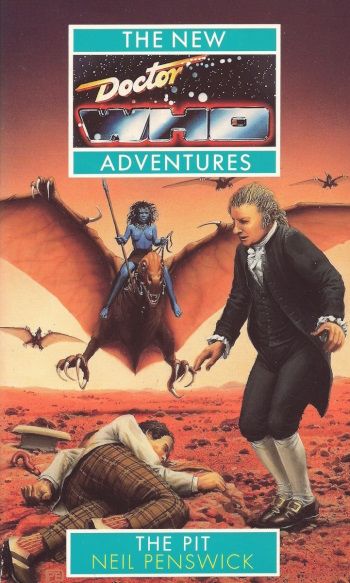


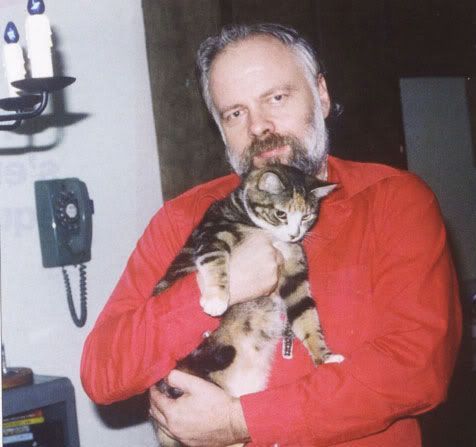
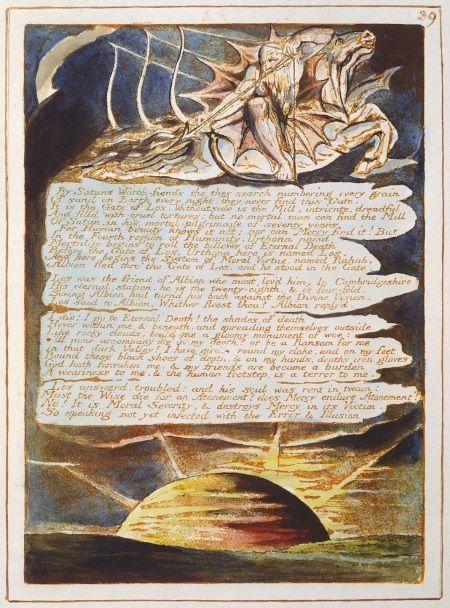
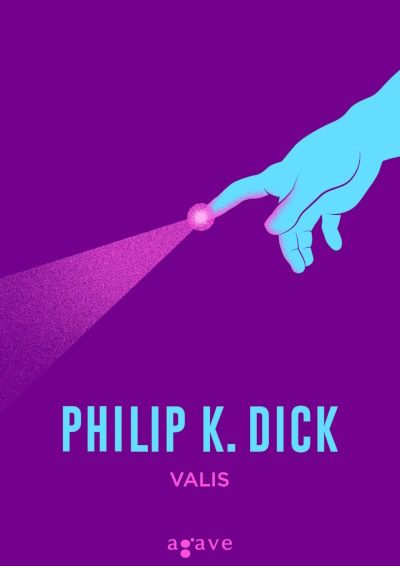
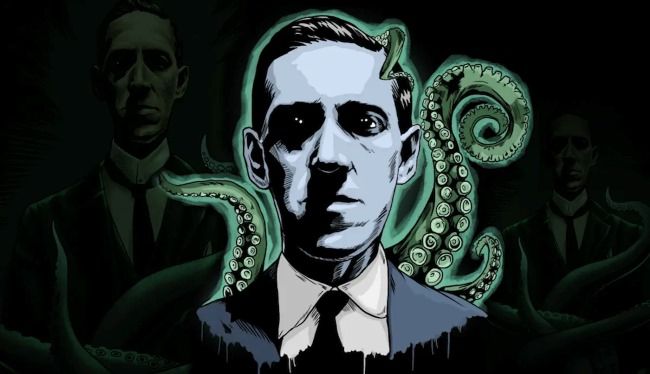
No comments:
Post a Comment